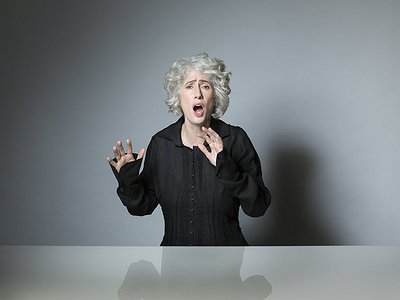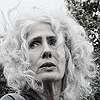Part 2
There are many descriptions of the ideal state of mind for being creative. What is it like for you? What supports this ideal state of mind and what are distractions? Are there strategies to enter into this state more easily?
Breath. It is always breath. If I soften right down to the pelvic floor, I am able to receive and that state makes the exhale pretty straightforward and connected to what is going on “for real.” Not two seconds ago — not two seconds from now.
Yawning. The spontaneity of a yawn… a pandiculation. Nervous system, fascia, organs, muscles, chemicals, and air in conversation. Time unfolding as a way to move forward rather than thrusting relentlessly.
How is playing live and writing music in the studio connected? What do you achieve and draw from each experience personally? How do you see the relationship between improvisation and composition in this regard?
I don’t really “write” music, but I have spent a lot of time refining improvised materials to create fixed “arias”, for example.
Tim Motzer and I spent time choosing which improvs and at times where to begin or end — what exactly was “the piece”. And then we played with some levels, and added percussion to a few tracks. All of that is about textural balance and was really fun.
When launching Vanishing, Tim and I decided to recreate some of the tracks in concert. We analyzed the sound materials and the structure and then without replicating the piece found the mood and a rough plot-line for performance. Our piece called “Density” was too long and somehow too heavy to bring back to life, so we included two free improvs in its place.
The evening felt curated and shaped like the album, which seemed theatrically trustworthy.
We call the pieces spontaneous compositions and this approach to performance let us go further into that hybrid space.
How do you see the relationship between the 'sound' aspects of music and the 'composition' aspects? How do you work with sound and timbre to meet certain production ideas and in which way can certain sounds already take on compositional qualities?
I think texture might be my favourite thing in life, period. So, vocal texture is a no brainer as the lead agent when singing. Because I have to use my flesh to make these sounds — they emerge from my physiology, which houses emotion — I am constantly negotiating a real-time integration of mind, body, and heart. That is likely the crux of how I compose — even for other people’s bodies. Though it doesn’t really sound like I am “composing” as much as integrating impulse and thought on the fly. Maybe it is DJing mind and body in real time? Then evaluating and refining? Choreographer Peggy Baker calls what I do with her dancers “vocalography.”
Our sense of hearing shares intriguing connections to other senses. From your experience, what are some of the most inspiring overlaps between different senses — and what do they tell us about the way our senses work? What happens to sound at its outermost borders?
At a young age, I imagined blindness would suit me better than deafness. Without sound I’d feel trapped. Sound and music are elemental for me. Like smell. I think I process vocal sound in a completely visceral way — even spoken sound is less about the language than the sound carrying the language. (This drives my daughters crazy.) Maybe because I went to French school at the age of four before I spoke a word of it? I do love words, but I am not so sure that I trust them…
I often tell my singing students that singing is about tasting the words. That there is something about love in the tasting. The mouth can care for sound.
I recently saw the astonishing documentary My Octopus Teacher. To my mind the (female) octopus stands in for the human autonomic nervous system - and the (male) filmmaker’s journey is one of witnessing and respecting the way the octopus’ nervous system processes her environment with great perception, intelligence and flexibility. Music comes from the human ANS (whale and wolf nervous systems make music too…) And then it is filtered through history, culture, values, curiosity…
Art can be a purpose in its own right, but it can also directly feed back into everyday life, take on a social and political role and lead to more engagement. Can you describe your approach to art and being an artist?
Collaborate as equals.
Let content infuse and shape necessary structure.
Share somewhere under the radar of culture.
Don’t be satisfied with “givens.”
Borrow and lend.
Breath is life and imagination.
Free the non-verbal human voice.
It is remarkable, in a way, that we have arrived in the 21st century with the basic concept of music still intact. Do you have a vision of music, an idea of what music could be beyond its current form?
Music soothes and riles - we need both. We need to be reminded that we can be moved. That transformation is important.
As for the future — no idea!






